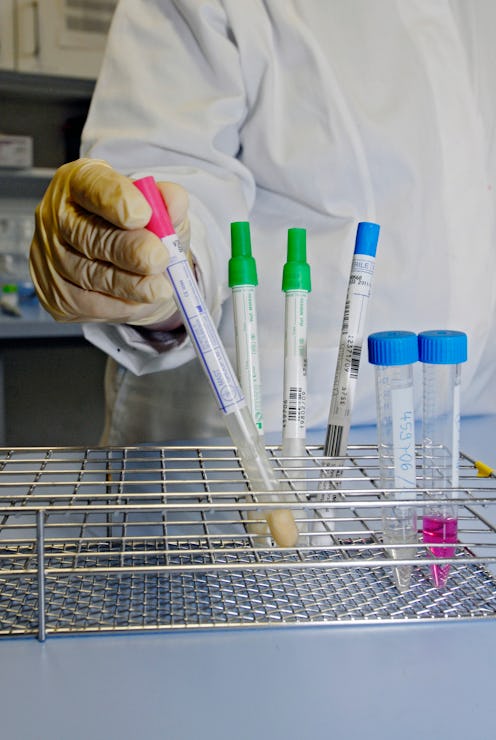News
Your iPhone Could Replace a Doctor's Visit
Forget waiting rooms filled with sick people and bacteria and bad magazines, being on hold for half an hour trying to make a medical appointment, or misdiagnosing yourself on WebMD. If a stress hormone test app proposed at a recent medical conference in Chicago comes to fruition, you’ll be able to test yourself for stress hormones within the comfort of your own home, using a simple tube device, your cell phone, and some saliva.
High cortisol levels can be linked to sepsis, depression, and overactive adrenal glands, among other things. A cortisol-measuring app was presented last week at the ICE/ENDO 2014, a joint meeting of the International Society of Endocrinology and the Endocrine Society in Chicago. While some commercial labs in the United States charge up to $50 to run such a test, the smartphone test will cost under $5 and give results in less than 10 minutes, lead investigator Dr. Joel Ehrenkranz told Reuters Health. As a result, the app could represent an equalizing force in healthcare, making testing more available in less affluent, low-resource areas of the world. The creators are hopeful it would be adopted by healthcare providers worldwide, they added in an interview with Reuters.
The app will also allow individuals to monitor their own cortisol levels, easily and inexpensively. The test can be performed with a reusable kit consisting of a case, light pipe, and lens, which can be manufactured for about a dollar. Users will simply insert a straw under their tongue, then place the salivary sample into a reader that connects to their smartphone. Minutes later the phone displays a result. This will allow people to test for Cushing’s Disease or the onset of a psychotic break, two illnesses that are linked to high cortisol levels but often go untested due to a lack of easy access to technology. This app mightn't be as simple as using Shazam to find the name of an unknown song, but it certainly sounds easier than trekking to the doctor's office and shelling out $50 for a basic procedure.
Although the need for a saliva sample is new to the world of smartphones, healthcare apps are definitely not. Way back in 2011, Apple launched Apple's Apps for Healthcare Professionals, a separate category of app to provide doctors and nurses with easy-access information. Then, just last month, Apple introduced HealthKit, a platform that aggregates information from a range of healthcare apps much like its Passbook does for tickets. The platform allows health and fitness apps to "talk" to each other, and will even share information between patients and healthcare professionals. As a result, it has sparked concern about patient privacy and questions as to whether healthcare professionals will even adopt the technology, for fear of information overload.
On a less intense scale, there are a range of apps to make taking care of your health easier and more fun. For instance, GoodRx compares the prices of prescription medications to help you find the cheapest option, Raw Potential uses your camera to watch your weightlifting form and give you feedback, Instant Heart Rate will take your pulse, and Moves is an activity diary that counts your steps without a pedometer and without you even remembering to turn it on.
As smart as your phone may be, you should take any advice coming from a handheld device with a grain of salt. To your phone, you are just a collection of statistics. So, while it's nice to receive the odd cell phone reminder to drink another glass of water, you probably shouldn't be accepting diagnoses and life advice from your phone. That doctor's waiting room with the trashy mags isn't looking so terrible right about now...
